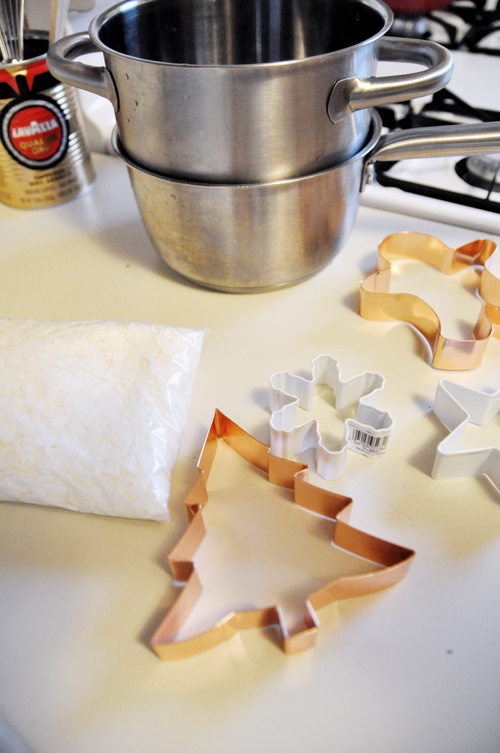“What’s that on your neck?”
As we know, some people like it rough, some people just bruise easily, and some people like it rough AND bruise easily. So, what do you do when somebody spots the results of some fantastic lovemaking and pulls you aside to ask if you are being beaten?
After asking around my friend circle (which was admittedly less fruitful than it usually is), it seemed that the common consensus was to just avoid the problem entirely by concealing the bruises. In Oregon, where it is cold and rains most of the time, that isn’t too difficult. But what about times like now, where it is in the 90s and brilliantly sunny all the time? A tendency for turtlenecks in the middle of July might come off as a bit suspicious. One of my kinkier friends said she’s gotten really good with using makeup to conceal her markings.
If that has failed, though, and the question has been asked, “What’s that mark?” then things become a lot more complicated. Your reaction obviously depends on where the bruise is, its intensity and to whom you are speaking. In many cases, honesty is the best bet, but honesty can only get you so far in certain situations. Namely, when dealing with family or certain types of co-workers.
On the note of co-workers, I used to work at Trader Joe’s (which is a great company and I still love them), and one day the assistant manager came in covered with bruises on his face. We all gasped, and somebody asked, “What the hell happened to you?” He replied, “Uh…” I asked him if he was dating a vampire. He responded, “Apparently.” Then we all laughed heartily at his expense for the rest of the day. That was a moment where the level of bruising combined with who was asking came together just right so that he was able to be honest.
That is often not the case. While I am hesitant to encourage lying, there are moments where it is necessary. Or at the very least, lies by omission are necessary. This is often the case with family members.
One of my friends once wound up with a few hickeys on her neck that were oblong and looked somewhat like finger marks. She had acquired these hickeys in high school on her “secret lesbian road trip.” She managed to hide them for a few days until her turtleneck supply ran out, at which point her mother saw them and asked her if she was in an abusive relationship and had been strangled.
She did not want her mother to know that she had hickeys, nor that she had gotten them from another girl. So she laughed it off and said that she’d slipped and banged her neck into the bedpost. “Not my best work,” she laughed while telling me about this. Amazingly, her mother bought it. My friend was convinced that her flimsy story had been inadequate. Apparently not, though.
Another friend had a similar occurrence, where she had a large hickey. As a normally turtlenecked individual, she’d managed to sneak by without notice for close to a week. But she was living in Los Angeles, and one day when it breached 100 degrees, she wore a regular T-shirt. “What’s that on your neck?” her 14-year-old brother asked her. She replied that she had been asleep on the couch at her boyfriend’s house when his dog jumped on the couch and landed on her throat. The story was convincing, and the matter was dropped.
I once wound up with a hickey, back when I was a stupid 17-year-old in high school. Somebody asked what the mark on my neck was, and I was able to pass it off on my best friend, Foster, because we used to fence and fight with bamboo practice swords. I just said I’d been too slow and he’d whacked me; a story that was true far more times than I’d care to admit. The excuse was immediately accepted without so much as a hint of hesitation.
Regarding this story, my girlfriend said, “So, ‘Foster’ is a totally acceptable answer to romance-based injuries … is there something you need to tell me?” No, my darling, there is not.
After polling my usually more helpful friends, as well as doing some Internet research, it seems that one of the most popular responses to “How did you get that?” is to simply say that you are clumsy and/or bruise easily and crashed into something. One of my friends has an easy out in that they have a diagnosed medical condition where they do bruise really easily. In any case, it seems being somewhat vague and generic is usually the best choice.
Also, if the people specifically ask if it is caused by abuse, or offer to be somebody to talk to in case of abuse, honestly thank them for their concern and explain that it is not abuse. It is important and really nice when people are willing to help out each other in that way.
Stealth is really the best option when it comes to love marks. If you are going to get marks, try to keep them under clothes. If you do get marks in visible places, apply ice and gentle compression. Consider covering them up with a spot of makeup.
Your diet can also speed things along. While obviously geared toward more serious bruising, in an article for the Huffington Post, Neal M. Blitz, a surgeon at Bronx-Lebanon Hospital in New York, suggested pineapple, capers, apples, red onion, citrus fruit and leafy green vegetables. These foods contain enzymes with natural anti-swelling capabilities and will speed the healing process. Remember: People can’t ask about something they don’t know is there.
Wishing you a fun and fulfilling sex life free of broken blood vessels.







